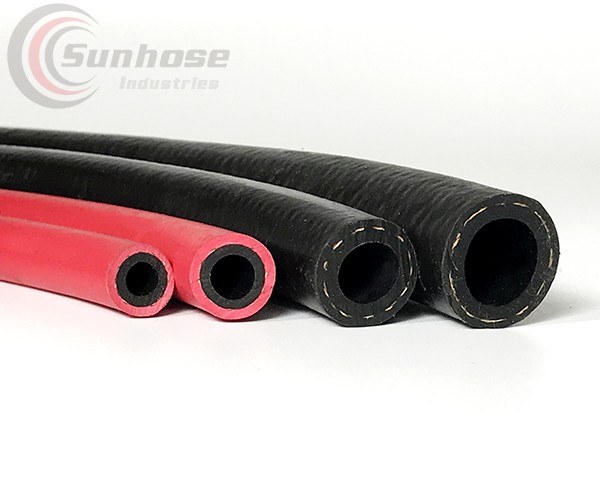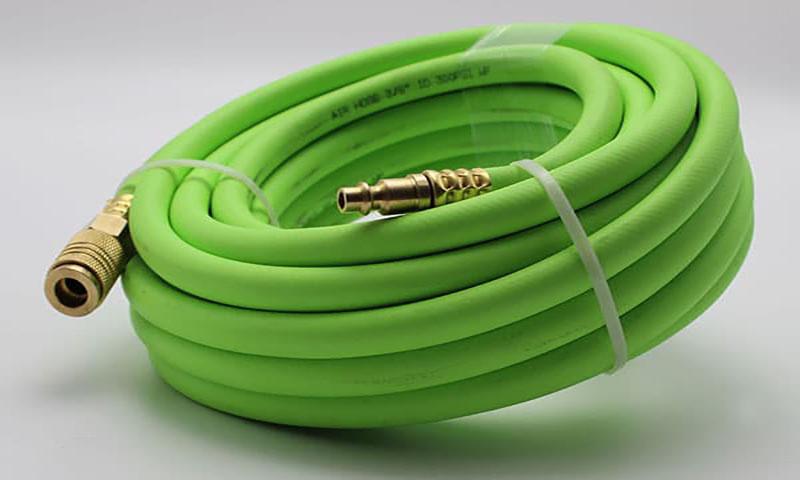Applications of Industrial Hoses
Industrial hoses are integral components in a wide array of industries, serving as conduits for the transportation of various substances, from fluids to gases, powders to solids. These hoses play a crucial role in maintaining the smooth operation of diverse industrial processes. In this article, we’ll delve into the world of industrial hoses, understanding their types, applications, and importance in different sectors.
- Introduction to Industrial Hoses
- Types of Industrial Hoses
- 2.1 Rubber Hoses
- 2.2 PVC Hoses
- 2.3 Composite Hoses
- 2.4 Metal Hoses
- 2.5 Thermoplastic Hoses
- 2.6 Specialty Hoses
- Applications of Industrial Hoses
- 3.1 Manufacturing Industry
- 3.2 Chemical Industry
- 3.3 Construction Sector
- 3.4 Oil and Gas Field
- 3.5 Agriculture and Farming
- Factors to Consider When Selecting Industrial Hoses
- 4.1 Material Compatibility
- 4.2 Pressure Ratings
- 4.3 Temperature Range
- 4.4 Flexibility and Bend Radius
- 4.5 Static Electricity Dissipation
- Maintenance and Safety Tips
- Choosing the Right Industrial Hose
- Conclusion
Introduction to Industrial Hoses
Industrial hoses are flexible tubes designed to transport a wide range of materials within industrial environments. They are used for fluid and material transfer, as well as for suction and discharge applications. The durability, flexibility, and material compatibility of industrial hoses makes them essential tools across numerous industries.
Types of Industrial Hoses
2.1 Rubber Hoses
Rubber hoses are known for their flexibility, durability, and resistance to a variety of media. They find applications in industries such as manufacturing, construction, and agriculture.

NBR Rubber Hose
2.2 PVC Hoses
PVC hoses are lightweight, cost-effective, and suitable for transporting air, water, and certain chemicals. They are commonly used in irrigation, construction, and general fluid conveyance.

high quality garden hose
2.3 Composite Hoses
Composite hoses are constructed from multiple layers of different materials, offering excellent chemical resistance. They are used for transferring aggressive chemicals and hazardous liquids.
2.4 Metal Hoses
Metal hoses, often made from stainless steel, are capable of handling high pressures and extreme temperatures. They are used in industries like petrochemicals, aerospace, and heavy machinery.
2.5 Thermoplastic Hoses
Thermoplastic hoses are lightweight and flexible, with good chemical resistance. They are utilized in industries where chemical compatibility and flexibility are crucial.
2.6 Specialty Hoses
Specialty hoses cater to specific applications, such as food-grade hoses for the food industry, steam hoses for high-temperature applications, and abrasive material handling hoses for industries dealing with granular substances.
Applications of Industrial Hoses
3.1 Manufacturing Industry
Industrial hoses are used for transferring materials, cooling machinery, and powering pneumatic tools in manufacturing processes.
3.2 Chemical Industry
Chemical-resistant hoses are essential for safely transferring corrosive and hazardous chemicals within the chemical processing industry.
3.3 Construction Sector
Construction sites rely on industrial hoses for tasks such as concrete pumping, dewatering, and transferring materials to different areas of the site.
3.4 Oil and Gas Field
In the oil and gas sector, industrial hoses are used for drilling operations, transferring oil and gas, and managing fluids in exploration and production processes.
3.5 Agriculture and Farming
From irrigation to pesticide application, industrial hoses play a pivotal role in modern agriculture, ensuring efficient water distribution and chemical application.
Factors to Consider When Selecting Industrial Hoses
4.1 Material Compatibility
Choosing hoses compatible with the transported materials prevents chemical reactions and potential hose degradation.
4.2 Pressure Ratings
Selecting hoses with appropriate pressure ratings ensures safe and efficient material transfer.
4.3 Temperature Range
Hoses should be suitable for the temperature conditions of the application to prevent damage and inefficiency.
4.4 Flexibility and Bend Radius
Consider the hose’s flexibility and bend radius to ensure it can be easily routed without kinking or causing flow restrictions.
4.5 Static Electricity Dissipation
In applications where static electricity buildup is a concern, choosing hoses with proper static dissipation properties is crucial to prevent hazards.
Maintenance and Safety Tips
Regular inspections, proper storage, and following manufacturer guidelines are essential for extending the lifespan of industrial hoses and ensuring safety.
Choosing the Right Industrial Hose
By assessing factors such as material compatibility, pressure ratings, and temperature range, you can select the ideal industrial hose for your specific application.
Conclusion
Industrial hoses are indispensable components in a wide range of industries, facilitating the seamless transfer of various materials. From rubber hoses in manufacturing to metal hoses in aerospace, each type serves a specific purpose, contributing to the efficiency and safety of industrial processes.
Q: Can I use a PVC hose for chemical transfer?
A: PVC hoses are suitable for certain chemicals, but it’s essential to ensure compatibility with the specific chemicals being transferred.
Q: Are metal hoses suitable for high-temperature applications?
A: Yes, metal hoses, particularly those made from stainless steel, can handle high temperatures and pressures.
Q: What are composite hoses used for?
A: Composite hoses are designed for transferring aggressive chemicals and hazardous liquids safely.
Q: Can I use the same hose for both air and water transfer?
A: Depending on the hose’s specifications, some hoses can handle both air and water transfer, but it’s crucial to verify compatibility.
Q: How often should I inspect industrial hoses for wear and tear?
A: Regular visual inspections are recommended, especially before each use, to identify any signs of wear, leaks, or damage.

 Sunhose
Sunhose sunhose
sunhose